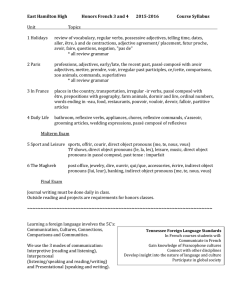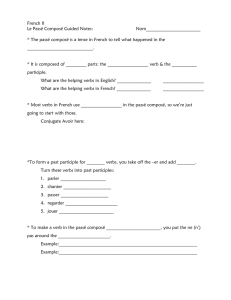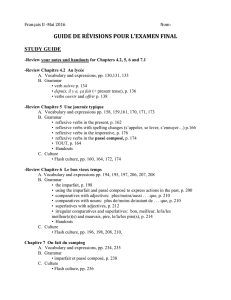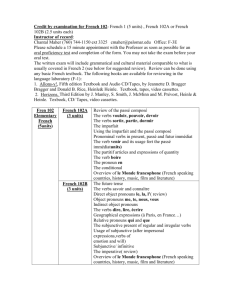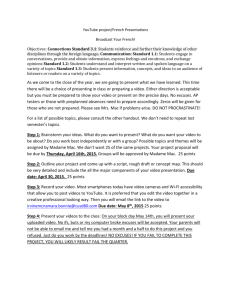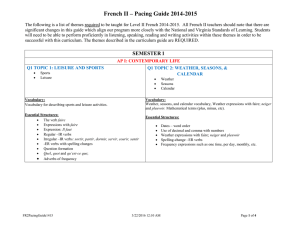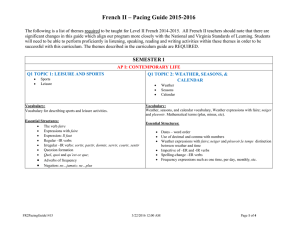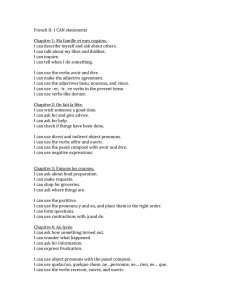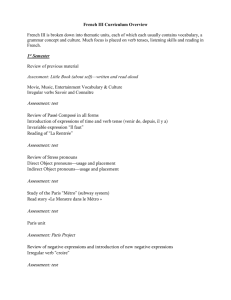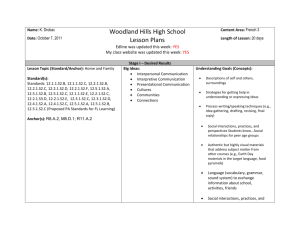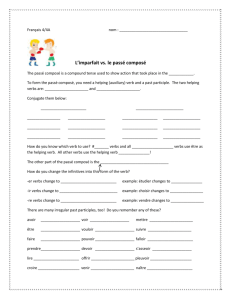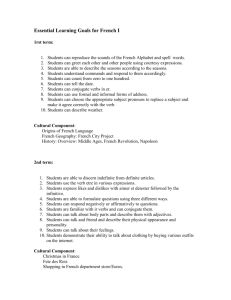French II
advertisement
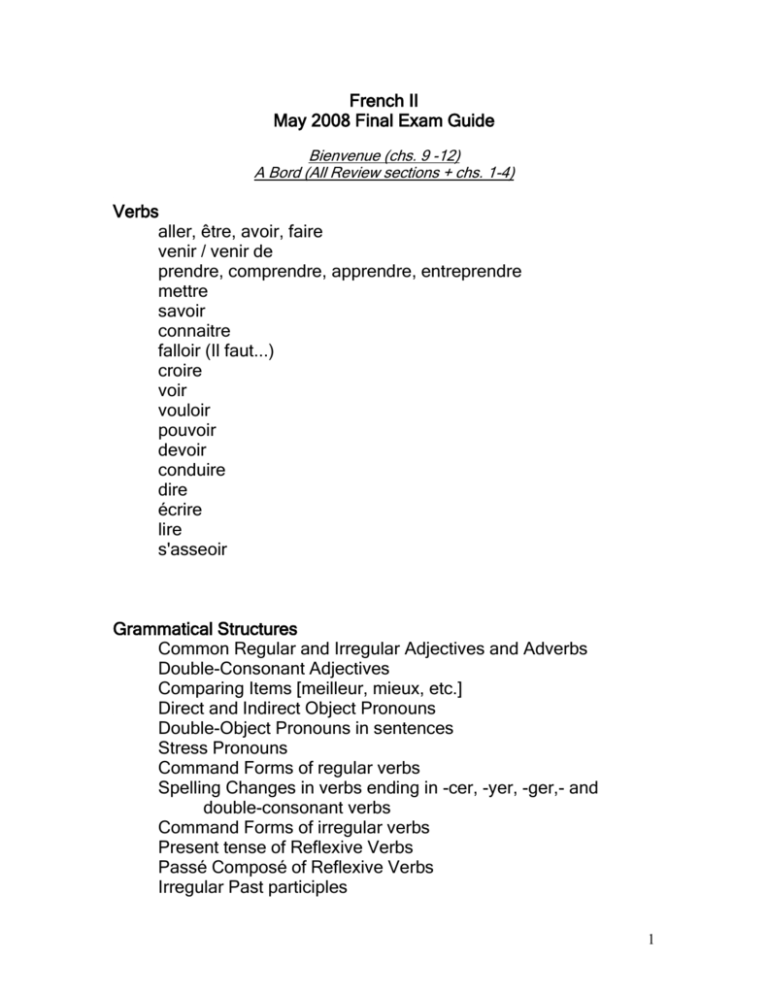
French II May 2008 Final Exam Guide Bienvenue (chs. 9 -12) A Bord (All Review sections + chs. 1-4) Verbs aller, être, avoir, faire venir / venir de prendre, comprendre, apprendre, entreprendre mettre savoir connaitre falloir (Il faut...) croire voir vouloir pouvoir devoir conduire dire écrire lire s'asseoir Grammatical Structures Common Regular and Irregular Adjectives and Adverbs Double-Consonant Adjectives Comparing Items [meilleur, mieux, etc.] Direct and Indirect Object Pronouns Double-Object Pronouns in sentences Stress Pronouns Command Forms of regular verbs Spelling Changes in verbs ending in -cer, -yer, -ger,- and double-consonant verbs Command Forms of irregular verbs Present tense of Reflexive Verbs Passé Composé of Reflexive Verbs Irregular Past participles 1 Negative Expressions (ne + que, rien, personne, jamais, etc.) Interrogative Expressions (qui, que, qui est-ce que, qui est-ce qui, comment, à quelle heure, où, etc.) Past Participle Agreement with preceding direct objects (and pronouns) Personne ne + VB Rien ne + VB The Passé Composé used with AVOIR The Passé Composé used with ETRE ALL spelling changes with forming the passé composé The Imparfait in simple sentences Using the Imparfait to describe weather, conditions, states of being, and habitual, continual, and repeated actions or events Two actions in the same sentence (continual and interrupting actions), ie. passé composé & imparfait used together Vocabulary Weather Expressions The Post Office Clothing Colors Shopping Market Vocabulary Fruits and Vegetables Numbers Daily Routines (Reflexive Verbs, things around the house and school) Sports and Leisure Activities Telephone Vocabulary Travel (plane, car, train, etc.) Driving Culture The French-Speaking World Location of Regions, Countries, and Islands on a map Basic Information Economy Political Situation, etc. 2 Provence Map Regional products, etc. 3
